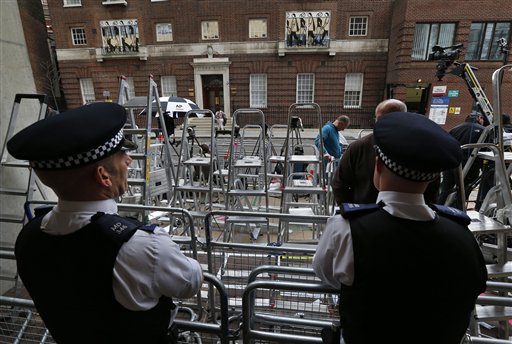
United Kingdom — A former U.K. counter-terrorism adviser has claimed police anti-terror tactics are contributing to radicalisation. Jahan Mahmood, who resigned from his position last year due to disagreements with the U.K.’s counter-terrorism strategy, told Sky News that British police are misrepresenting the threat level in the U.K.
Mahmood claims there are far too many arrests and that most detained are never charged. He said the trauma and stigma associated with being accused of terrorism often alienates people, and that this allegations can send some down a path towards violent extremism.
He believes the U.K. government is misrepresenting the severity of the threat to the country, and that this puts pressure on police to arrest individuals — even if they have little in the way of evidence an offence has been committed.
An analysis of arrest statistics from 2014 revealed that out of 289 arrests, 102 were charged with a terror offence — 35% of those arrested.
Describing multiple arrests as creating an atmosphere of fear, Mahmood said: “Not just fear within the community, but fear within the counterterrorism units around the country – a fear of not doing enough on time, which sometimes means they act without taking due process into consideration.”
He claimed that arrests based on “flimsy evidence” contribute to further radicalisation of already ostracised individuals. Mahmood’s assertions are backed up by this year’s figures, which reveal that out of 315 people arrested, 124 were charged with a terror offence.
Britain’s largest Muslim organisation slammed elements of the U.K’s terror strategy back in October. Like Mahmood, the Muslim Council of Britain claims the counter-extremism strategy risks undermining the fight against terrorism. It condemned Britain’s “conveyor-belt theory’’ of extremists and accused the government of conflating terrorism with subjective notions of extremism and Islamic practices.
Meanwhile, Islamophobia continues to pervade the U.K.. Ongoing scaremongering in sections of the media has led to the normalisation of anti-Muslim hatred and a growing number of acts of violence against the Muslim community.
We may snigger at the Islamophobic gaffes of a certain American presidential candidate, but the prejudice translates into real life events, and bigotry is becoming commonplace — such as in the case of a man asked to leave a bus because someone felt uncomfortable, or another forced off the tube after a commuter complained he used his iPad suspiciously.

